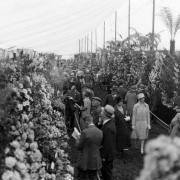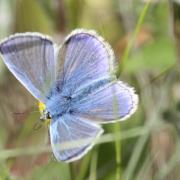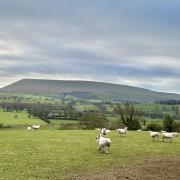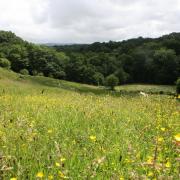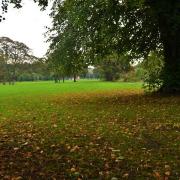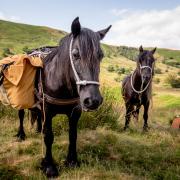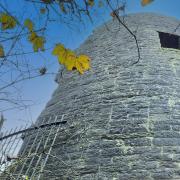Chorley’s John Ainsworth has built up a formidable reputation for the quality of his hand made guitars. Rebekka O’Grady reports. Photography by Glynn Ward

John Ainsworth has an international reputation for making superb classical guitars, but he has a guilty secret. ‘I actually play the guitar very badly,’ he confides with a laugh. ‘My family was musical but, sadly, I didn’t inherit their ability. Making them is the next best thing.’
As a youngster John made his first guitar out of necessity. ‘I was 14 and my parents wouldn’t let me buy a new one. The guitar I had wasn’t very good and I thought that was the reason I was rubbish at playing!’
At that time, there was little information to help aspiring guitar makers learn the craft. John was fortunate that his father had a cellar full of woodworking tools and enough space to make instruments. ‘I went to the library in search of something to help me,’ he said. ‘That first guitar was made with the help of a small book called ‘Make Your Own Spanish Guitar’ by A.P. Sharpe. Of course, since then there has been an explosion of information and today’s aspiring guitar maker has easy access to the techniques and skills needed.’
Unfortunately, after making his own guitar, it dawned on John that it was the player, not the guitar. ‘It was, sadly, no better than the one I had! Every time I looked at it, I was horrified - it wasn’t even symmetrical. That was the end of guitar making for some time.’
The next few years saw John study for a degree in Zoology at Liverpool University (‘As I child, I thought I could become David Attenborough’) and then working as a salesman for a number of years before subsequently being made redundant. During this time, he had been making guitars again as a hobby, so picked it up as a full time job.
‘During this period in the 1970s, guitars I made were supplied to the leading guitar shops of the day in London, Nottingham and Bristol. One of my guitars from that time was sold to Elvis Costello,’ said John. ‘However, a growing family meant needing to meet financial demands I couldn’t reach as a guitar maker.’
He spend several decades working at the family’s foundry business in Whittle-le-Woods, and John ended up taking over in 1986 after his father died. There was no time for guitar making then but the foundry finally closed in 2001, and John rekindled his passion at home in Chorley.
‘I’ve done it full time ever since,’ said John, now 67. ‘It’s something I have always wanted to do, an indulgence and I love doing it. As you are working mainly with hand tools, if you are young, fit and devoted you could make 12 guitars per year. It takes me around six to eight weeks from start to finish.’
John makes fine classical, flamenco and baroque guitars, which have been played and admired by many famous concert artists including Julian Bream, Alirio Diaz and John Mills (who will be playing one of John’s guitars at his concert in Chorley in April). They sell for £4,000 each.
‘I have people who approach me to make guitars, and I also have two outlets in Stafford and Bristol where I take them to be sold. I love customers who appreciate the work and craftsmanship. No two instruments are ever the same.’
Traditionally, classical guitars are not overly decorated and are made with a spruce top, or soundboard, coupled with backs and sides of rosewood.
John tells me how Brazilian rosewood used to be the timber of choice but it is no longer legally available because of over-exploitation of the Amazon rainforest.
‘The demand for instrument making is not necessarily to blame. A key ingredient of Chanel No. 5 perfume is rosewood oil, which has led to a black market in the oil and the tree being designated an endangered species.’
Instead, an acceptable alternative is Indian rosewood which John current uses. He has also made guitars from locally sourced hardwoods, and recently sold guitars made from local cherry and pear.
So what’s next for John? ‘I’m happy to continue making them at the rate I am and supplying them to professional musicians. I have no ambitions for guitar world domination,’ he smiled.




